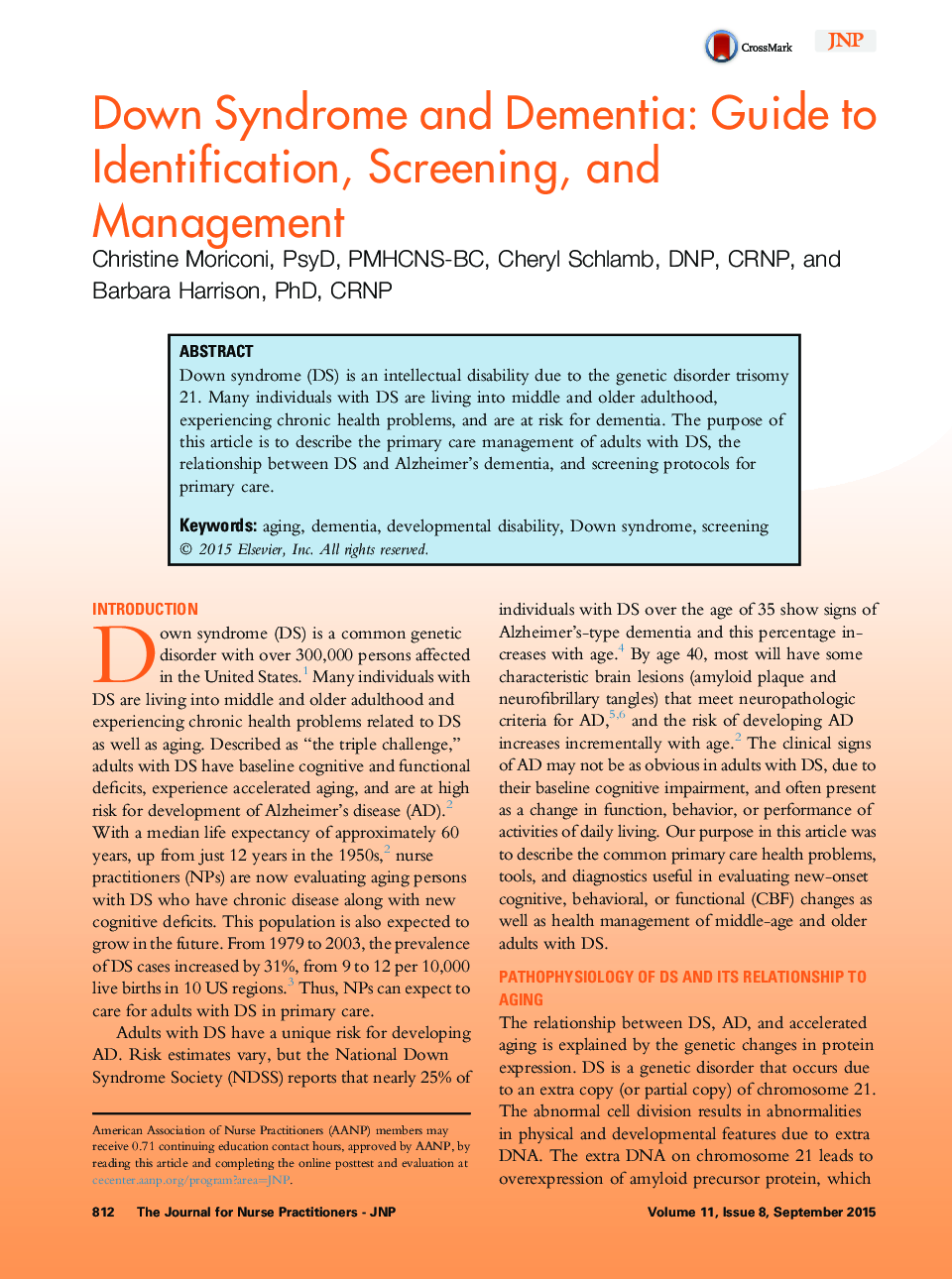| Article ID | Journal | Published Year | Pages | File Type |
|---|---|---|---|---|
| 2663105 | The Journal for Nurse Practitioners | 2015 | 7 Pages |
•Described as “the triple challenge,” adults with Down syndrome have baseline cognitive and functional deficits, experience accelerated aging, and are at high risk for development of Alzheimer’s disease.•Chronic health problems associated with Down syndrome and aging include vision and hearing deficits, epilepsy, thyroid dysfunction, obstructive sleep apnea, immune dysfunction, osteoarthritis, and Alzheimer’s dementia often starting by age 35.•Dementia screening tools used in the general population (eg, Folstein Mini Mental Status Examination), have not been normed for adults with Down syndrome and thus are not reliable and valid screening tools.•There is little (weak) evidence to support use of cholinesterase inhibitors (donepezil and others) to delay cognitive decline in persons with Down syndrome.•The National Down Syndrome Society has resources to help families and caregivers.
Down syndrome (DS) is an intellectual disability due to the genetic disorder trisomy 21. Many individuals with DS are living into middle and older adulthood, experiencing chronic health problems, and are at risk for dementia. The purpose of this article is to describe the primary care management of adults with DS, the relationship between DS and Alzheimer’s dementia, and screening protocols for primary care.
